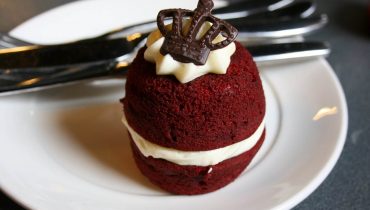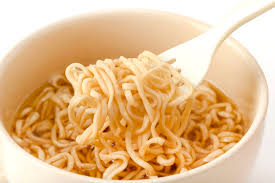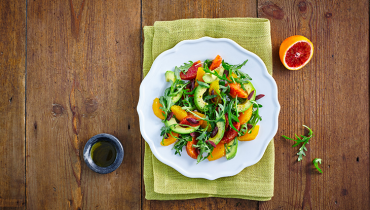The expression “fine wine” is unquestionably one that is more subjective than objective and in reality, more centered around cost than some other factor.

What is Fine Wine?
What precisely influences a wine “to fine”? Maybe you’ve tasted a few wines and the one you preferred best doesn’t fit under the fine wine umbrella. Why? Who makes up these principles, at any rate?
Inquiries Answered
The wine business isolates itself into various “classes” of wines/wineries relying upon who the objective purchaser is. Intriguing, would it say it isn’t? This is not possible as everyone wishes that their item be presented as “Fine wine”.
For instance, take Cook’s “Champagne.” We all know it and maybe inspected it on more than one occasion and whatever you may consider it, you know it’s not “fine wine.” Their objective market, however, isn’t the individuals who are dumping $20+ on a jug of air pockets. So their objective market is those individuals who need bubbly however would prefer not to spend a mess to get it for some reason.
This, coincidentally, is a HUGE market portion! So in the event that they began making their wine diversely and charging for it, they would place themselves into an alternate target advertise – basically losing their base demographic. So you can see that you don’t generally need to be a fine wine to fit a market specialty!
Levels of Wine
So what characterizes a fine wine? Everything spins around cost (doesn’t all that matters?). At the present time there are most likely these classes of wine:
- Container/mass created
- Esteem wine
- Industry normal
- Premium
- Ultra-premium
That is in no way, shape or form a complete, end-all-be-all of classifications, however, one that is precise now. Presently, you may think as of now that premium and ultra-premium are strongly valued wines, isn’t that so? Not by any means, they are in reality more sensibly valued than you might suspect.
Premium wines from wine store typically are characterized as wines somewhere in the range of $13-19 and ultra-premium wines are anything $20 or more. You can see that ultra-premium wines have a wide play of the field in a manner of speaking.
Many starting wine-tasters I have met have generally trust that ultra-premium is $50 or more. So the wine business, as a rule, considers anything premium or ultra-premium to be fine wine. Everything returns to cost.
Value Factor
So far this has been a genuinely exact approach since it mirrors the level of value items utilized as a part of the winemaking procedure. The presumption is you can’t make a “fine wine” that costs under $10 or so given that oak barrels and quality organic product sources are exorbitant, added to that more nitty-gritty winemaking strategies being utilized.
In any case (and this is a BIG in any case), that does not imply that different wines that fall underneath this class are bad tasting or surprisingly better tasting than some “fine” wines. Many wines at less expensive value focus destroy their more costly partners – commonly.
Modest Italian wines, for instance, have a tendency to advance and balanced…yet they don’t fit the “fine” wine definition given their cost. With the goal that’s the reason, you need to not consider cost and taste being on a similar wavelength. This goes for ultra-costly wines, as well; don’t influence yourself to imagine that all wines over $100 taste fantastic…they don’t.
Some Famous Fine Wines
When we consider fine wines, we generally go to the cream of the harvest the ones we find out about in films. In the event that you are a devotee of James Bond, you realize that he loves his ’55 Dom Perignon (and even chastised somebody for drinking it too warm). In the event that you have seen any music video recently, you realize that Crystal is the staple wine of a lot of music stars and who hasn’t heard the term Mouton Rothschild? You don’t even truly have expected to taste it to know it. These are the whole fine wines, clearly. They’re all very expensive, as well. Everything returns to cost.
Cost Isn’t Everything
Cost is a colossal thought of many individuals with regards to picking and preferring a wine. In my wine instruction classes, I do an activity that is exceptionally educational: The class is isolated into two particular and equivalent estimated gatherings.
One gathering goes to an alternate classroom, the other gathering remains. The same cheap wine is poured for the two gatherings and they have enlightened all the data regarding the wine (assortment, vintage, AVA, and so on.) with one special case.
One gathering is told the wine costs far more than it truly does and the other gathering is told the genuine cost. The two gatherings taste the wine, assess it, and afterward return together, in general, to talk about the outcomes. It’s astonishing what the outcome is! The gathering that idea the wine was essentially more costly gave significantly higher checks and raved about the how great the wine tasted. The other gathering who thought the wine was “modest” gave extremely poor imprints.
When I share what the fact of the matter is with the class they are generally amazed. It indicates how fetched observation is a major thought to believing that the wine is great. So whether a wine is a fine wine or not doesn’t generally make a difference, it truly all backpedals to individual taste.
Drink What You Like
So as with all wines you drink, it backpedals to drinking what you like. The expression “fine wine” shouldn’t generally assume apart what you choose you to like in a wine (unless you like a more costly wine).
A decent exercise to do is to taste the plenty of wines as you can “dazzle”. It implies cover the jug or has another person pour it for you so you don’t see it. When you don’t realize the cost of the wine you can just judge it on how it tastes to you! Fine wine or not, you can just judge a wine on its taste and smell.
Whenever you feel to drink, consider first whether you like the wine before passing judgment on it on its cost. Try not to give anybody a chance to reveal to you what to drink. Take pride in drinking a wine that makes you cheerful – fine wine or not!





